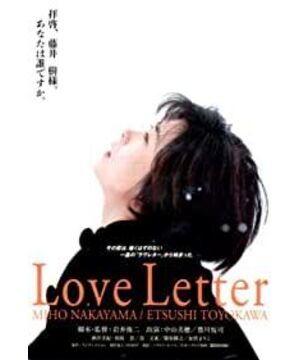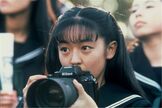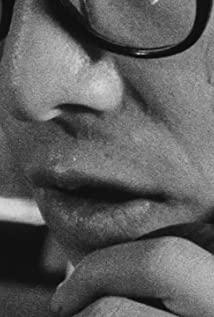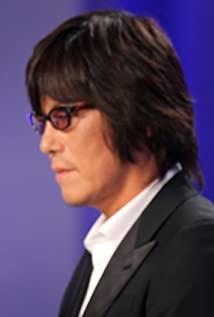It's amazing. I read "Love Letter" for the first time from the extracurricular Chinese textbook in middle school. And in a very pure textbook style: there is a paragraph at the beginning that spoils the plot, plus a self-righteous commentary, skipping the original long rendering and foreshadowing, and directly taking out the heart of the novel at the climax for you to see. It's like holding a bloody organ in both hands and saying to a teenager: "Hey, this is the pituitary gland, that is the prostate. This is how people's heartbeat and pleasure are produced."-How can people experience foreplay sex in the future? Woolen cloth? However, in any case, I still remember this story for a long time.
This story, by all accounts, is one of our most familiar "Youth Pure Love Story", even though I was just born when it was turned into a movie. Later, I bought the new classic library hardcover, and was willing to shed tears for it at the time-as a symbol of my being a sentimental girl. As for the more well-known movie, I only saw it at the beginning and abandoned it because it was too slow to enter the film. After a few years, I picked it up again recently.
The novel version of "Love Letter" was an ordinary story of two ordinary people in my previous imagination. Ordinary middle school students, even a little bit lower. Just like the vast majority of boys and girls in the class at the time, they were blurred and always wore school uniforms. I don't talk too much in the ordinary time, I never get into the limelight because of anything, and I can't be the object of joking with the teacher in class. Unlike the protagonists of youth dramas who were absent from school, fell in love, and arrogantly kicked the glass doors in the corridor, almost no one cared about what they were thinking or doing in private. It's like the part of the male Fujii tree who had a fracture and a fall and still had to participate in running. What was he thinking at the time? The film does not explain the motivation, but uses this plot to portray the intolerance of the female Fujii tree towards him; at the same time, it uses the same ridicule and contempt of the surrounding audience to form a contrast-yes, I think if If I was there when I was in middle school, I might laugh at him pretendingly.
However, using Takashi Kashiwabara to play this role constitutes a kind of contradiction and irony-because he clearly has the face of a "youth protagonist", as long as the viewers think more deeply, they will inevitably find out: the arena The audience's reaction at this time is obviously false. That was a handsome and strong boy, not a failed ordinary person. Would people still laugh at him? Not too possible. In the same way, if the male Fujii tree in the story has the face of Takashi Kashiwabara, and the female tree is as lovely as Miki Sakai, then the time spent in the past about bullying and ordinary, sullen things will become somewhat different. Embarrassed and hypocritical.
If the scene in the arena is a life scene, there should have been many girls who have surrounded Takashi Kashiwahara (male tree) like heroes. In my eyes, this is one of the cruelties of "youth": the so-called "pure love" ignores money and class differences, and does not consider the future and results. In fact, I have not learned to manage those factors, so it is just "pure watching". Face of love".
The original text of "The Love Letter" touched me without the presupposition of "face": the subtle feelings of two ordinary people. This kind of touch is closer to the resonance of private memories than love.
However, this resonance is completely disrupted by the imbalance between characters and personalities in the movie. "I was crushed by a beautiful boy at the end of the century". I am afraid that few people in the world have this kind of private memory? So after watching the movie, I don't want to sing at all. Not to mention that the heroine, whether it was Miho Nakayama or Miki Sakai, was as pretty as a Japanese doll at the time. The possibilities and choices of such a beautiful woman's life are like another dimension. I can't imagine that I can only look up. Although in the movie, their emotional line is dry and monotonous: from beginning to end, it is everything related to Fujii Tree (Tsaka Kashiwahara). In general, although the audience always has a tendency to watch the reunion story of "a pair of jade men entered the bridal chamber", after all, the love letter itself is not such a story. The beauty of the characters makes the story even more unconvincing. Therefore, a pair of jade men will be disappointed.
The other is that the film and the book are very poorly done: Hiroko Watanabe.
When I first read, I was eager to pay attention to Nishu's love, and I completely wanted to skip the dry bozi part. It was not until I watched the movie that the screen forced me to watch it. At this time, I understood what kind of role she played.
Bo Zi is a docile clue figure. She is very typical in terms of structure or personality. Typical means that Bozi's whole body is full of characteristics that can be summarized. Therefore, she does not actually have any real characteristics-she is not shaped as a flesh and blood body at all, but is a bit like that under male words. A kind of "angel type" female. All of Bozi's activities revolve around his deceased boyfriend. In addition to providing motivation for connecting the entire story, it may also show a sense of "healing" or "self-salvation". (In the "How are you" scene in the Snow Mountain, complete the redemption, let go of the past). However, it has been more than three years since her boyfriend has died. No one has explained to readers why she can't get out so much? The library of "Love Letters" is so thick, full of the procrastination and trivialities that Japanese text can have, but when I wrote about the blog, I don’t remember any description of how deep their feelings are, and why Fujii grew up so worthy of love. The details appear. Due to the lack of explanation of the motivation, Bozi seemed to be led away by the “mission of the clue person”, which was also the reason why she felt boring when she read it at first: she just had to write letters to Fujii infatually, and had to beg for help. Recalling the past, in the end, I had to sublimate myself again, letting go of everything. As a female viewer, I think Bozi’s unreasonable behavior is a bit more like evil, not for "love".
After the bad blog, there is something even worse: even her dry self-improvement process was completed with the strong assistance of another male character-I don’t know whether Iwai Shunji thinks of women The characters cannot completely "stand up" on their own (such as the scene where the female tree is ill, when the 76-year-old grandfather rescues her, and the mother almost becomes a resistance and drags her back). As portrayed in many film and television dramas, after losing a spouse, male characters will default to the state of enduring grief, taking responsibility, and actively looking for "continuations" and getting the support of people around them; while female characters hurt the spring and fall, and abandon themselves. It's endless, since then Huarong has turned pale, and can't wait to stay a widow. (For example, Nushu's mother did not remarry). It can be said that the foundation of this story is rooted in this kind of conventional thinking, and everything about Bozi shown below is crooked: when the camera is shot on Bozi, she always has a pair of gentle and innocent eyes open, as if she is saying: "That's it, I don't want to do anything. I just want to love my ex-boyfriend, always love, love to death." And the supporting actor who doesn't look like a good person has been pulling her away and dragging her. To complete everything (this process also includes many obvious physical movements of the man), drag her to find Fujii's home by the railway, drag her to the snowy mountains, and finally the male character proudly announces: "I'm going to tell Fujii Shu, you (Hiroko) are now mine."-Boko has become an object again at this time. Fujii Shu is dead, so now her property rights are officially transferred and attached to his friend's name?
And don't forget, the reason why Hiroko and Fujiishu are dating is: Hiroko's appearance is exactly the same as that of the female tree. And Fujii told Hiroshi that he was "love at first sight" for her-from the beginning to the end of the island, Aya Fujii had not told Hiroshi anything about the female tree, even jokingly, understatement, and nothing. This kind of desire to cover up even shows that his heart is actually the same as we guessed: the motivation for his love with Bozi is to find some kind of psychological compensation for the first love that has failed. In fact, I don’t understand why the author wants to arrange this way. . Is it to highlight the unforgettable dedication of the male tree to the female tree? (I don't want to call it love). Did the author really not realize that this would be cruel to bloggers? (Perhaps I didn't really portray Bozi as a "person")
So in the film, we acquiesce that men have the right to "select" women for their first love or their Oedipus complex. (It is said that women will also have this, yes, but it is hardly appreciated and expressed.) And the film clearly reinforces this point, which is another source of unpleasant factors as a female audience. Here, compared to youthful memories, Bozi's injury resonated with me.
The last point, the actor recalls the red rose that Zhonghua can't bloom-the female Fujii tree.
Judging from the performance of the female tree, I feel that she has never had the same degree of admiration for the male tree from beginning to end. She may have had curiosity (although it is the first step for us to start loving others), but it really stops at curiosity. Under the circumstances at the time, she did not find his love, so she will not in the future. In the end, those memories have qualitatively turned into something like "the love of the past of oneself". In other words, if the female tree is a real ordinary person, she will only love her youth at the time through this memory, instead of looking back and falling in love with the male tree when she was in junior high school. It's just that many viewers are probably more inclined to have this kind of crush in order to have feedback. Therefore, at the end of the film, the female tree was moved by tears at the "love letter"-to be honest, if she smiled politely and returned the portrait to the children, I wouldn't be surprised, and even said that she should be like this. Do-she has the right to refuse this touch completely and completely.
It may be that Takashi Kashiwahara and the author’s narrative tone confuses us in the film and in the book. The male protagonist we remember is such a shy, charming, not good at expressing, kind-hearted boy with all the advantages, but at the same time our potential The point of view is also through this boy looking at the female tree-starting from the "unpleasant memory" of the female tree, we have put ourselves in the net of "love", everything here After the soft light of "Love" and "Tsou Kashiwahara", it became different. But in fact: real language bullying, pranks with a paper bag on the head when riding a bicycle... are all unpleasant. However, the author here unexpectedly "ingeniously" presupposes an atmosphere of "girls enjoy" (which constitutes a mini-rape). Put aside the faces of the characters in the movie version for the time being, and look at it from a girl's point of view: an ordinary girl fell in love with an ordinary boy (of course she didn't know it at the time). They were ridiculed by the whole class, and the boy was very unhappy about it. He always seemed silent and angry, and he had done nasty pranks against her. ——If it weren't for the poor clueer Miss Bo Zi to come to reveal the past, how could the female tree know that this is a kind of love? If I replace the girl with myself, I think I would only feel scared, disgusted and sad. Even if it was announced later: This is a crush on you. Does the female character have to think: "Oh, I am crushed, this is really the greatest reward for me! Everything in the past has become a great prize!"-I'm sorry I really don't feel it at all, and I won't moved.
Men initiate admiration-pursuit and even hard pursuit-the hard pursuit touches everyone-and all the beauties are happy. There are so many such routines in life and film and television that make people annoying, and the status of "people" and women in them are both worthy of fun. "People" seem to take it for granted that women should be rewards for men's pursuit process, while ignoring women's personal wishes, it seems that the deeper men's love and the more they give, the women should accept and become some kind of "members." This is undoubtedly a kind of materialization. And in "Love Letter" there is another scene: the bicycle shed when the female tree is looking for the male tree to pick up the papers. Three ugly girls confess to a handsome boy. Go, leave the unsightly girl yelling like a mad woman-this scene may have made some viewers laugh, but I can't laugh at all, because this scene seems to say: idiot, what rights do ordinary women have and Qualified for love? You are so ugly, you have already lost the basic qualifications of kneeling and licking male power.
In the film, no matter whether the female tree, the blogger, or this unsightly girl, like a good friend who is like a female tree and idiotic, the female image is distorted from the male perspective, which is outside the appearance of the male and female protagonists. The second discrimination...that may be a bit serious, but this film, together with this book, and the touches it evokes, at least I am totally unmoved, and even a little uncomfortable.
However, the filters added by the age now seem to be very beautiful. The soothing, calm and romantic of the 90s, in general, does not deny that this is a beautiful story. Too many people have talked about the advantages, it's just about the part that I don't like, I hope it will fade away with the age.
View more about Love Letter reviews











